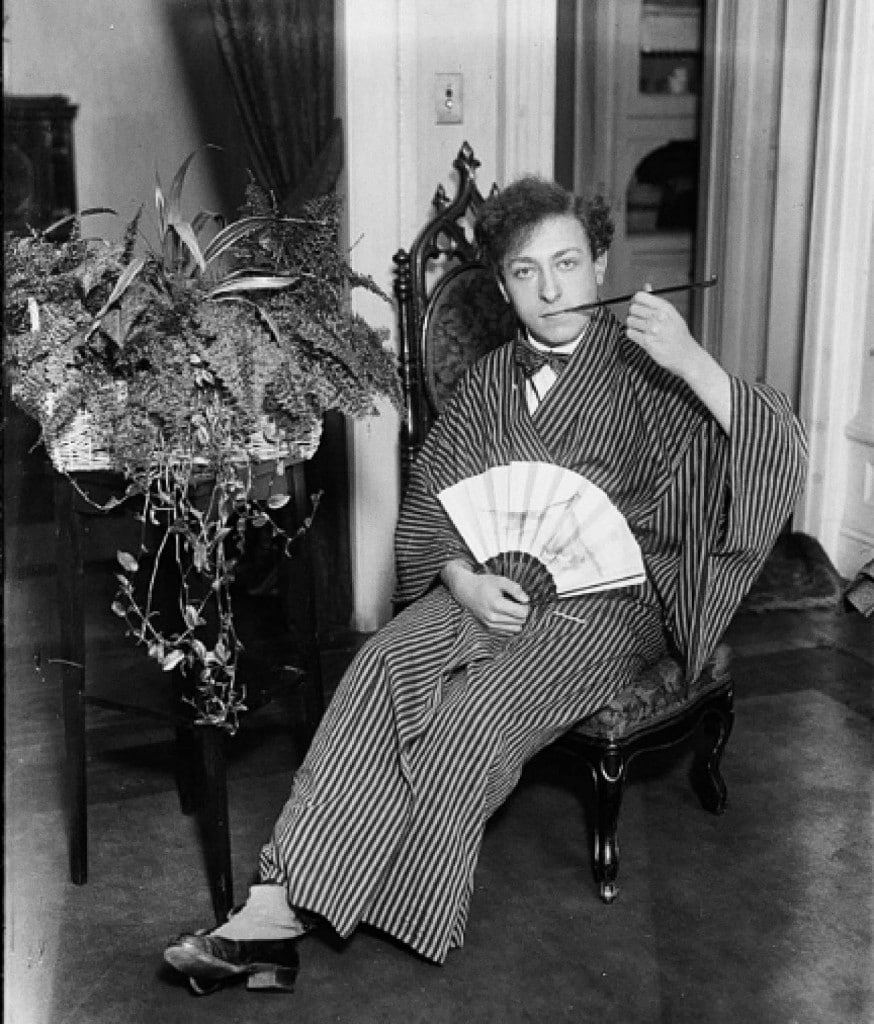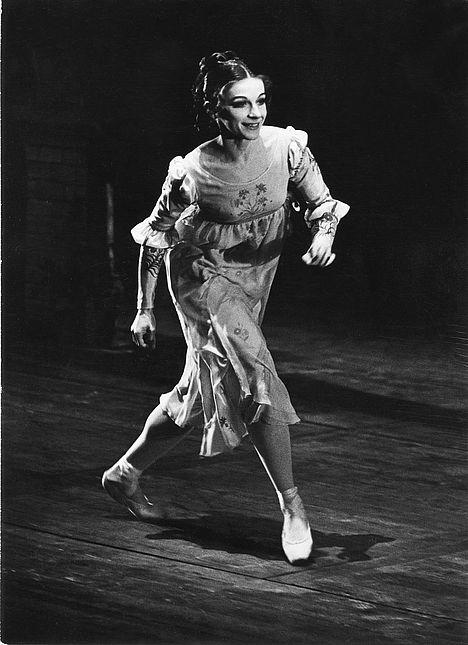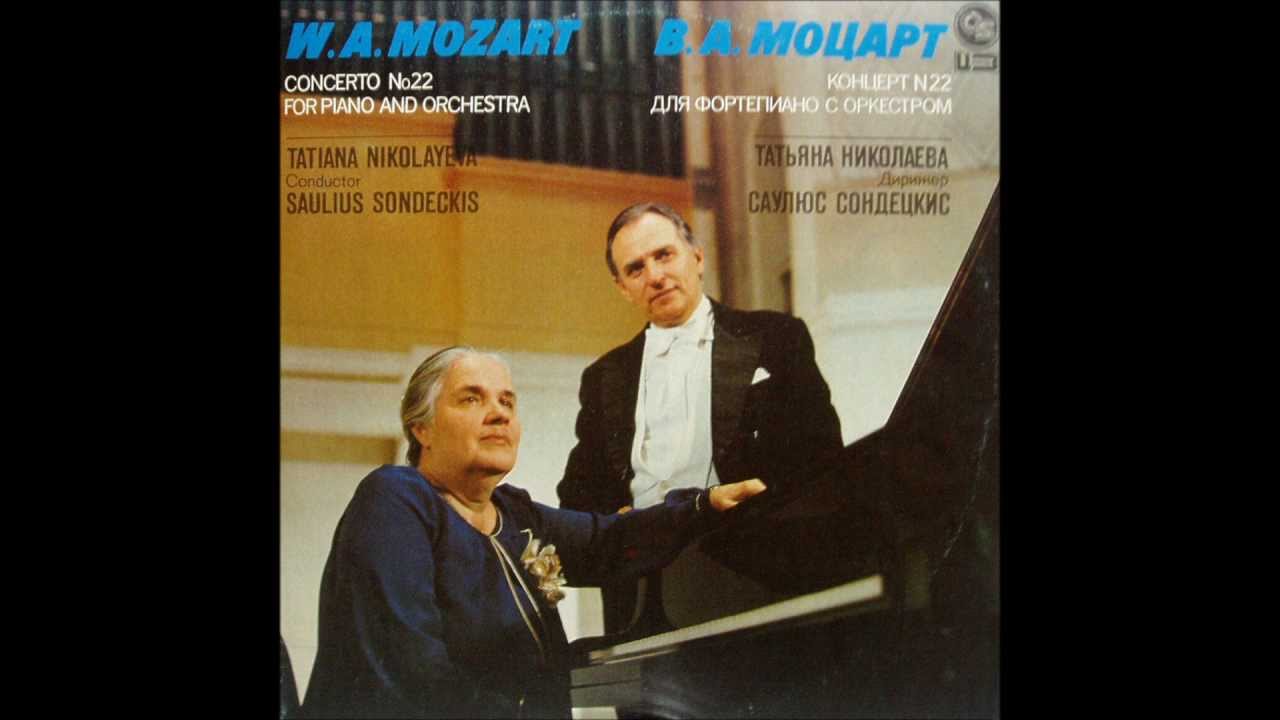The Slipped Disc daily comfort zone (268): Pure gold
mainThe Korngold concerto was torn apart by critics when Jascha Heifetz gave its 1947 premiere. It is now one of the most popular pieces for violin and orchestra.


The Korngold concerto was torn apart by critics when Jascha Heifetz gave its 1947 premiere. It is now one of the most popular pieces for violin and orchestra.

A social media activist has circulated a video…

The orchestra of Spain’s poorest region has just…

The Vienna State Opera has posted a death…

Jessica Duchen has an eye-catching provocation in the…

Session expired
Please log in again. The login page will open in a new tab. After logging in you can close it and return to this page.
Third rate Hollywood dazzle dazzle
Propably cos you can’t play it.
My PA sometimes plays fragments of this concerto on her occarino in the weekends, and derives from that nasty experience the right of uttering drastic negative commentaries on monday morning. All critical arguments result from bitter experience, one should never ever take any argument at face value. Since we know that Pythagoras was a nasty fellow beating-up his wife and leaving the garbage bags in the front yard, we know that his work in mathematics was a failure right from the beginning.
Stupid comment.
The acceptance of a given work as a masterpiece is always subjective and has
no bearing on the difficulty of playing the work.
You either find it of interest or do not.In this case
to this listener the work is third rate if that . It
desperately wants to be original but like most
of his work it lacks the inner pulse,it imitates
originality and that seems to satisfy many.
I love this concerto. Now if the symphony would get as much play time. It’s a terrific, modern yet tonal symphony that people would enjoy. John Wilson’s new recording should win a lot of people over.
Completely agree! The John Wilson recording absolutely blows away the competition (only two I know of – Previn and Welser-Möst). I love the first movement of the symphony so much!
And Jascha Heifetz himself was torn apart by some critics – most notably Virgil Thomson (he said Heifetz played “silk underwear” music) — around that same time. It was the sneering age for American music criticism, currying favor with the academic dogma about modern music that stunted or killed so many careers, although I suspect if JH had programmed or recorded even one short piece by Virgil Thomson things might have been different from that source. I like some of Thomson’s music very much but how the New York Herald-Tribute could not see the conflicts of interest in his criticism is beyond me. Or it being music criticism maybe they did not regard it as genuine journalism and hence did not care.
Korngold not only failed to toe the line for what modern music was supposed to sound like, but he composed – shudder – movie music as well, and — double shudder – happened to like some of his own film themes enough to recycle them into this concerto. I am not aware that Bronislaw Huberman (who died the year of its premiere) ever had a chance to see or play the Concerto which he himself had suggested to Korngold.
The Heifetz recording is of course a classic (LM 1782 in the LP era, coupled with the Lalo Symphonie espagnole in the four movement version) and I can tell you that violinists and violin teachers held on to that LP even after it was reissued on CD because the cover photo had a superb close up photograph of Heifetz’s bow grip, and showed how much he tightened his bow. My own teacher asked me to bring in my copy because he could not find his own, and wanted to remind himself of the grip and the look of the bow.
Many fine versions now exist, and certainly the elderly monaural sound of the RCA Victor original has been much surpassed – how could it not be, in such richly scored music. There is still something magical about Heifetz’s phrasing and romantic urgency that commands attention. But just to mention one other recording, and also by an artist who sometimes comes in for his share of sneering by certain critics — never but never underestimate the Itzhak Perlman recording.
When the 1973 Ulf Hoelscher EMI recording came out — the first one in the modern/stereo era and so richly recorded — it was a revelation.
https://www.nytimes.com/1974/03/24/archives/lights-action-korngold-recordings.html
For those who are familiar with the movies and the movie scores, it’s fun to hear the themes pop up in the concerto. There’s Errol Flynn! There’s Olivia de Havilland!
One is not surprised to read the Nelson take on the Virgil Thompson review of Heifetz , what is surprising is Nelson’s determination to
misinterpret the meaning of the Thomson
observation. Hey ! whatever floats your boat
It is a beautiful concerto!
Despite the fact that that famous review said “it’s all Korn and no Gold” – which is one of the all-time cherishable reviews – the work itself has established itself in the repertoire (although certainly not played with the frequency of Brahms-Beeth-Mend-Tchaik).
Just ask Ms. Mutter, Mr. Shaham, or Mr. Perlman.
Bravo, Korngold!
And Kavakos. Hands down the best I’ve heard live.
And Simone Lamsma as well. Her live performance was breathtaking.
But it’s #5 most-performed now — and the trajectory has been stratospheric.
Or it could mean that standards have fallen so low that it finally found acceptance with many
who are not too fussy in what they listen to.
If you understand the violin world at all you cannot but laugh at this pretention no matter
how seemingly effortlessly Heifetz sails through it.
Alas, all of this is entirely true.
Many people prefer the cheap, the easy, the shallow. ‘Life is hard enough’, they say, ‘let me have some nice relaxation’. Or: ‘Why should I have to better understand life or myself? That could only be disappointing’. So, they degenerate.
You do realize by now that you are tilting at windmills …
Listen to the Philippe Quint recording on Naxos. It’s a gem.
your just ask list says it all three of the most dull players to come down the pike ,of course they would play Korngold…dull attracts dull……..
Korngold was a child genius – his 2nd piano sonata, written at age 13, was performed by Schnabel. If the 2nd world war hadn’t happened, he would never have immigrated to America. It’s not his fault that he had to turn to Hollywood in order to make a living – so he shouldn’t be ridiculed for it. He wrote plenty of serious, distinguished music wel before he went there. And some of the greatest film scores are Korngold’s.
The Korngold violin concerto is nice, but nothing special, its sentiment is surprisingly thin – it’s for easy listening and still having the impression that one is listening to serious classical music.
The ‘silk underwear’ observation is certainly correct, but there can be no serious objection to such type of garment, as long as it is not claimed to be something else.
You must have a heart of stone.
No, I merely have better ears than some people here. I love emotional music, but prefer true emotion and not its sacharine imitation. Compare with the Stravinsky concerto, which has two (!) middle movements which are gripping under the polished surface, especially the 2nd one:
https://www.dailymotion.com/video/x2lki7w
Or, closer to home, the Barber concerto, which is as romantic as the Korngold, with a comparable sweetness – but it has much more musical substance:
https://www.youtube.com/watch?v=tD3nZ0uPslI
JB is certainly right about Stravinsky!
PS:
Another example:
https://www.youtube.com/watch?v=-bvC0kXrmDM
Great composer, gorgeous concerto, gorgeous playing.
Needs no defending.
Film scores are the incidental music of the cinematic age. Composers from Saint-Saens on have written them, or tried to: Stravinsky, Schoenberg, Jacques Ibert, and Korngold. Specialists whoworked within it such as Max Steiner, Bernard Herrmann, Dmitri Tiomkin, and Korngold helped make it respectable.
Bfore posting, I took the radical step of listening to Korngold’s violin concerto, which I hadn’t heard for a while, although I have Mutter and Heifetz paying it. Heifetz is miraculous, exquisite very migh playing, harmonics?, double-stops. There are enough rollicking tunes in the finale for any composer to envy, and folk elements Bartok might have liked. It deserves a place with Delius, Sibelius, Bartok, Khachaturian, Barber, Nielsen, Szymanowski, Prokofiev, Shostakovich, Vaughan Williams, and Schnittke.
In addition to the ones you named there are also such fine violin concertos from last century as for example those by Glazunov, Elgar, Berg, Stravinsky, possibly Lutoslawski, perhaps even Bernstein’s Serenade…and I may be forgetting one or two others at the moment. In my opinion, Korngold’s contribution to the genre is certainly attractive enough to be included not lower than just outside of the top ten on that longish list.
The comments about the Korngold from Virgil Thomson and John Borstlap illustrate why the New York Times does not allow composers to be in their stable of music critics – conflicts of interest, professional jealousy and all that.
Why does it always have to be personal? Couldn’t people who are working in the profession have a better insight? Is the work of judges, dentists, notaries and surgeons always better assessed by people who have no clue about it? The artistic quality of classical music work can never be ‘proven’ in a scientific way, but it can become understandable in comparison with other works, and with an open mind, experience and good ears. With so many excellent and great violin concertos around, it is not so difficult to hear how thin the Korngold is. The poor man began as a brilliant young talent, but his flight to the US and – under the pressures of life – his work as a film composer, undermined his artistic development. And then he had the bad luck that the 20th century did not particularly like Viennese late romanticism, of which he was a representative; he did not ‘progress’ to the steely, materialistic and empty modernism that became fashionable.
+100
Yes, this does sound like Hollywood music and that is because E.W. Korngold set the standard for motion picture musical underscoring. Korngold played a formative role in many movies; as formative as writers, cinamatographers, directors and actors did. And even saved some after they were shot and left for dead. Sure, can see movie scenes unreeling to this music. I can see a movie to Siegfried, too. Melodrama is also music. Here the “melo” prompts our own drama: and it is enchanting! And imagine! A refugee composer earning a good living!
I agree. In fact, another way of putting it is that rather than the concerto sounding like movie music, it’s that movie music sounds like the concerto.
Or even more so, that movie music sounds like Korngold.
A perspective. Richard Wagner liked to wear silk underwear. Not a crime. He didn’t compose any special concerto, but a few sublime operas. Korngold did compose a serious opera, insufficiently appreciated in America. Hollywood won.
It’s a charming piece full of sentiment. It needs a performer who can respect it on its own terms for what it is, and not try to present it as something it isn’t: emphasizing the profundity makes it sound maudlin, and emphasizing the pyrotechnics makes it sound silly. It collapses if you lean on it too hard.
I’ve played in the orchestra for it several times, and disliked it for many years because all I heard was one star violinist or another treating it as a vehicle for their particular forte (whatever they decided that was). I was finally able to enjoy it in 2019 when we accompanied a young violinist named Angelo Yu. That led me to investigate recordings I hadn’t listened to yet, thinking maybe there was some hope for this piece. There’s a YouTube video of Nicola Benedetti at the Proms where she gives it, IMHO, just the kind of balance it needs: vivacious but not show-offy, lyrical without hyperventilation, with humor without slapstick. (Her recording is great too.)
Voilà.
Schmaltz
I read that Korngold mined the themes for his movie music from the concerto– not the other way around. Someone with more time on his/her hands could compare composition (not publication) dates to verify or disprove. I doubt it really matters.
It is always amusing to read tin-eared critics giving their pompous opinions on tuneful music which is not in fashion with their inflated opinions. As Beecham said, they are usually, ‘people who can read music but can’t hear it.’ If you don’t like the Korngold concerto don’t listen to it but don’t deprive others of the pleasure.
The type of pleasure the Korngold enthusiasts cultivate, is the type that bars their ears to something so much better. It contributes to the weight by which classical music sinks to the level of the most underdeveloped audiences. It’s a result of misunderstanding modern democracy, to think that freedom means you finally can give-up making an effort, and that any taste is as good as any other. It is the horizontal thinking of the egalitarian world view. This is something quite different from academics who can’t hear the music.
Your generalizations (like most of them) are erroneous. For example, I enjoy Korngold’s Concerto, but it does not in any way bar my ears “to something so much better”, such as for instance Stravinsky’s that you deservedly praise in this thread and I like it very much as well – just in a different sort of way. Also, I do not believe for a second that “any taste is as good as any other”, but, strangely as it may seem to you, I am somehow still able to appreciate the Korngold. You appear to abuse the word “better”, especially when it comes to your evaluation of your own ears. It would be a good idea for you to consider the possibility, however remote, that your ears and your musical taste are not really “better” but just narrower and more limited than those of others. No one here that I can see is declaring Korngold’s Concerto to be equal in musical quality to those by Beethoven or Brahms (just to keep us firmly in the key of D), but this does not mean that it is somehow “wrong” to be enjoying the one by EWK as well occasionally.
True, there is nothing wrong with enjoying empty or very thin, tasteless music. One cannot and should not be one’s better self 24/7. More often than not, kitsch is the humus upon which art is growing. But that is not the point: claiming a status far above what this piece really is, simply shows a very limited perception, that is all. And such perceptional limitations are too often operating in the musical world, where the rusty iron is often sold as pure gold, to exploit underdeveloped audiences.
If discarding the kitschy and the shallow are signs of a narrow mind, I wholeheartedly embrace that sorry condition.
‘I have a very simple taste, I’m only happy with the best’. And: ‘If many people agree with me, I get the feeling that I must be wrong’. (Oscar Wilde)
None of us has a monopoly on dictating to the world “what this piece really is”. So far its history shows that its appeal is enduring. If my ability of enjoying simpler artistic pleasures while understanding the differences between them and profound masterpieces is a sign of my wider vision of life, then I “wholeheartedly embrace” such distinction.
It is not wrong to enjoy the third rate EWK as many here profess they do….it is that they
settle for third rate and justify the choice
by pretending to more informed broad taste.
I might suggest that to admire Korngold in the same breathe as the Stravinsky would mean a misunderstanding of both works no
matter the key.
Definitely not “in the same breathe” (sic) whatever that means. That is why I wrote “in a different sort of way”. In any case, rating musical compositions is an extremely inexact exercize.
Quite.